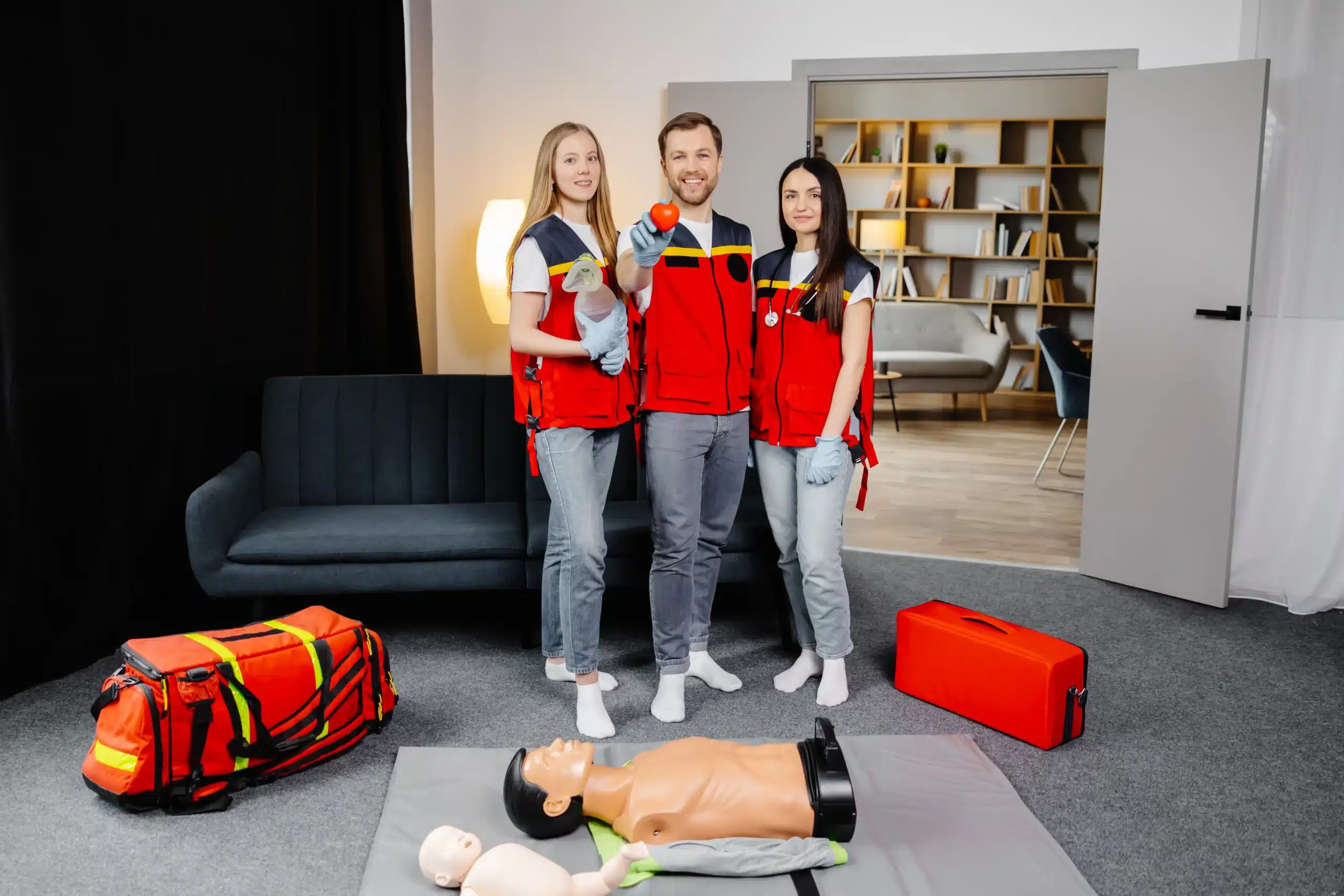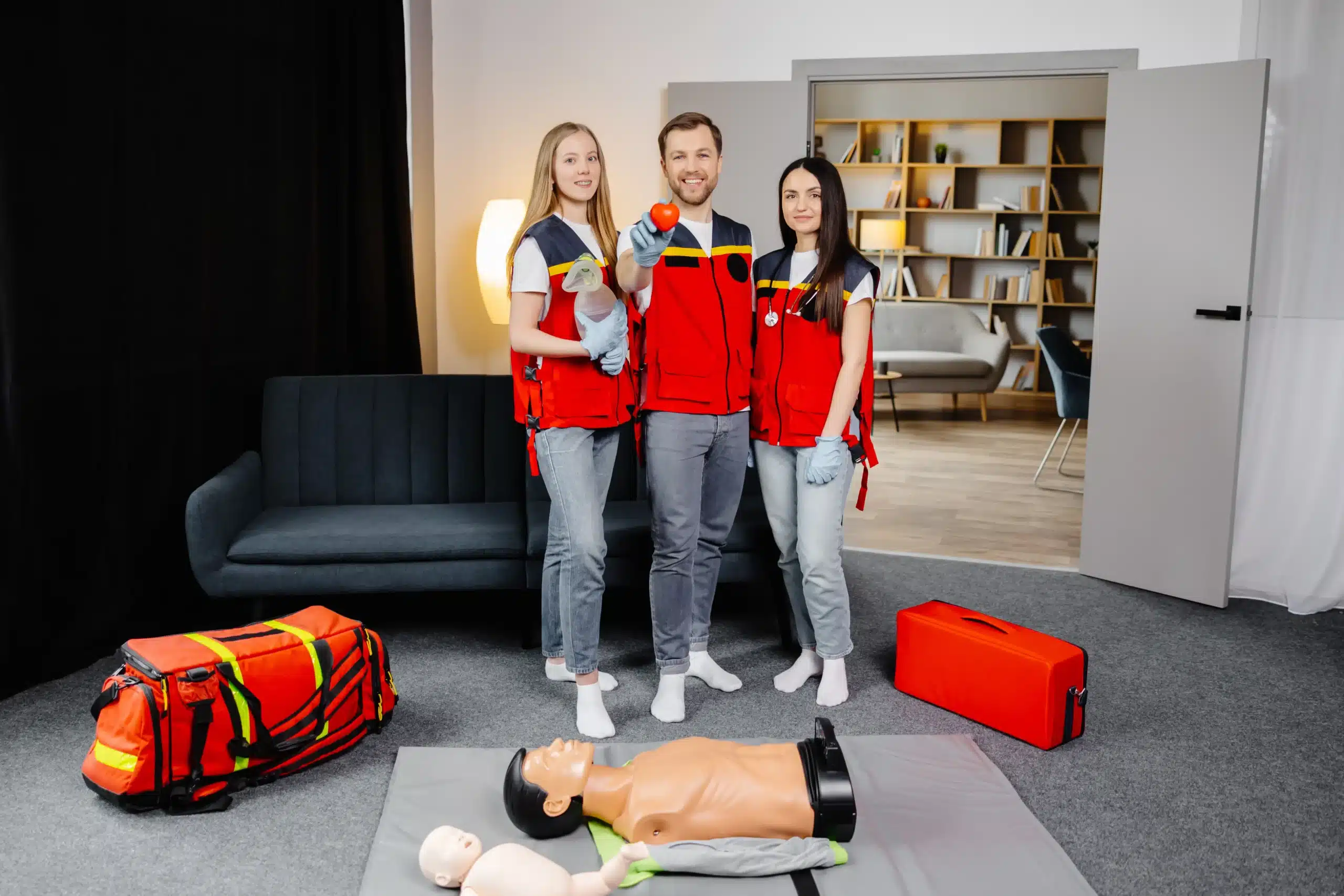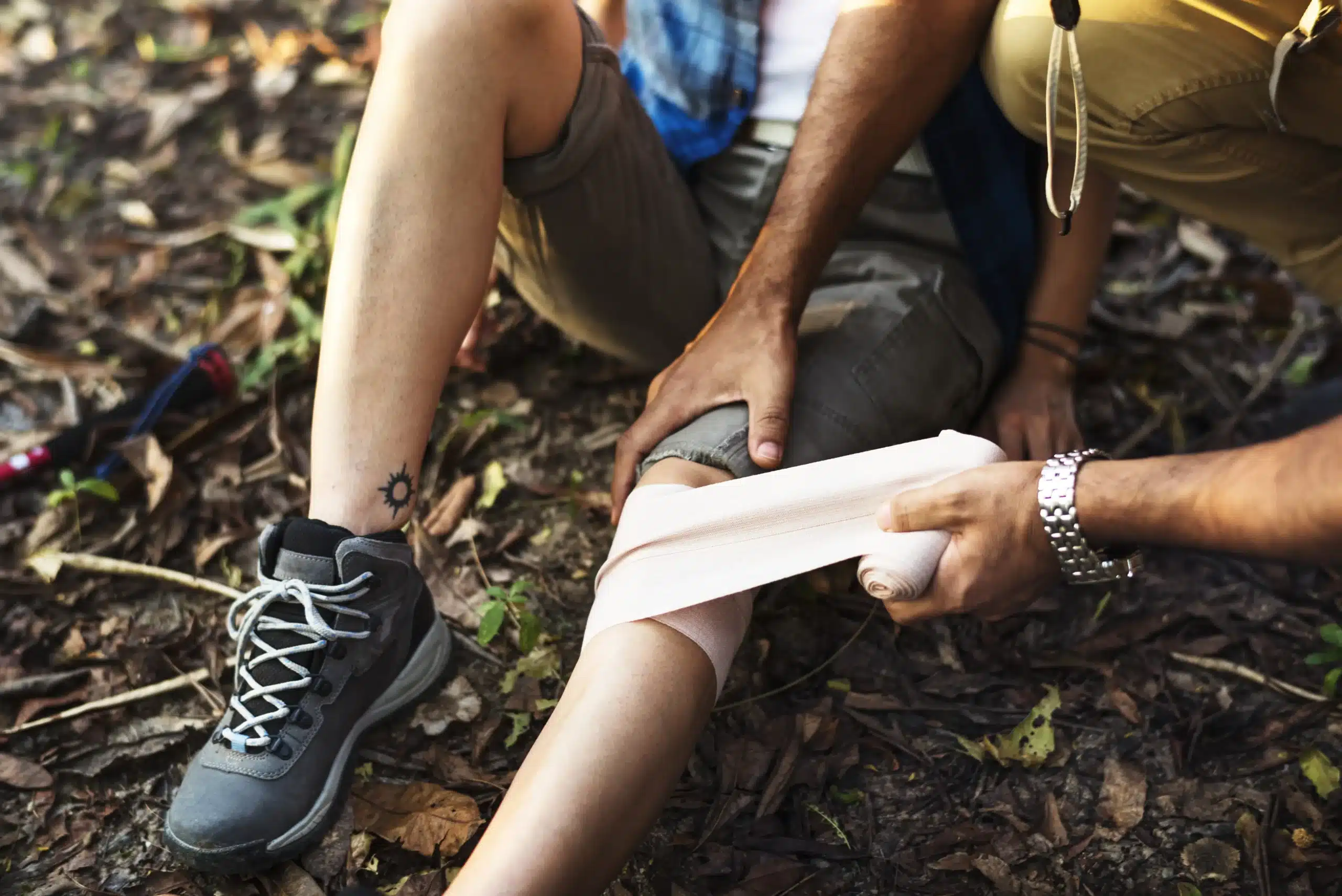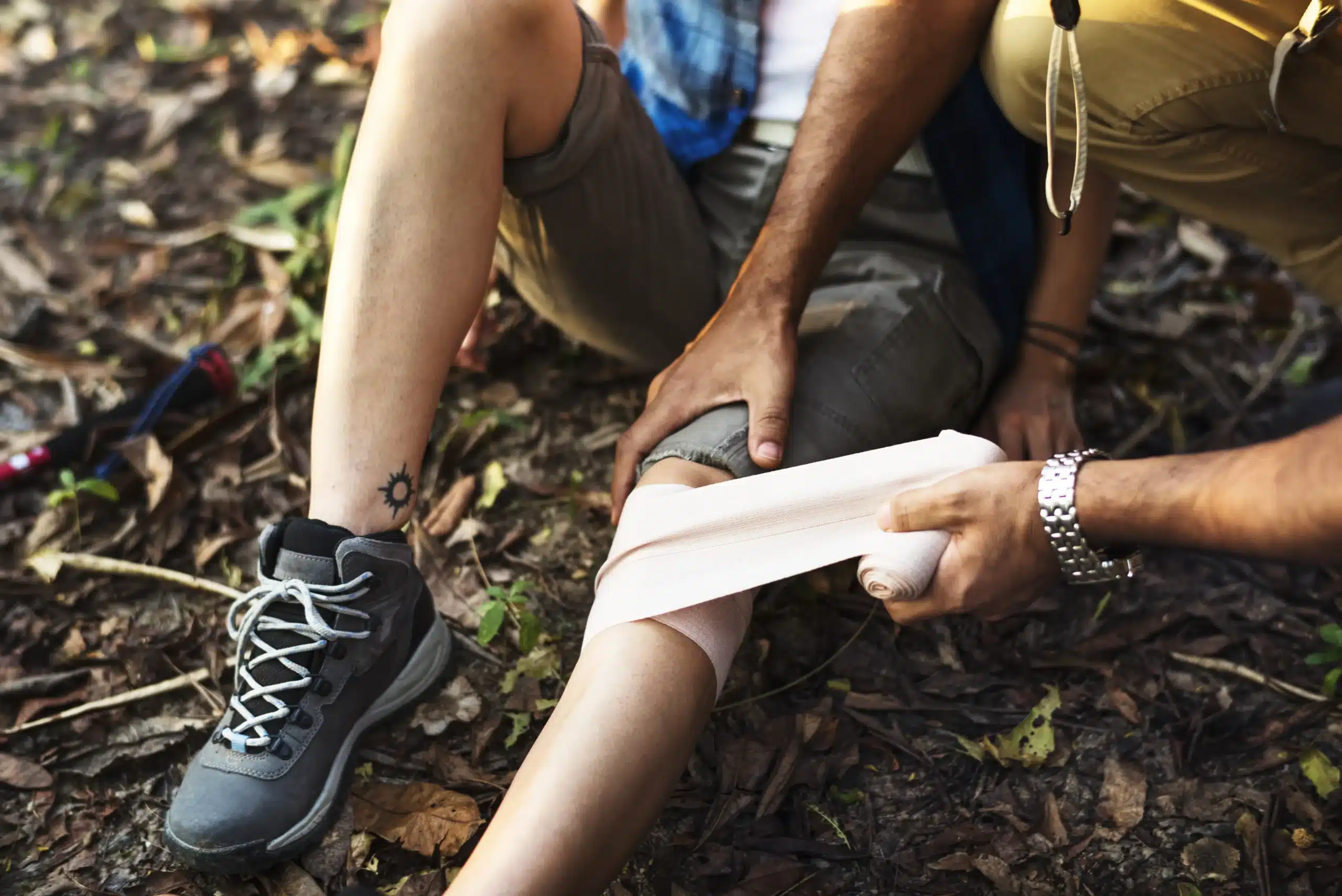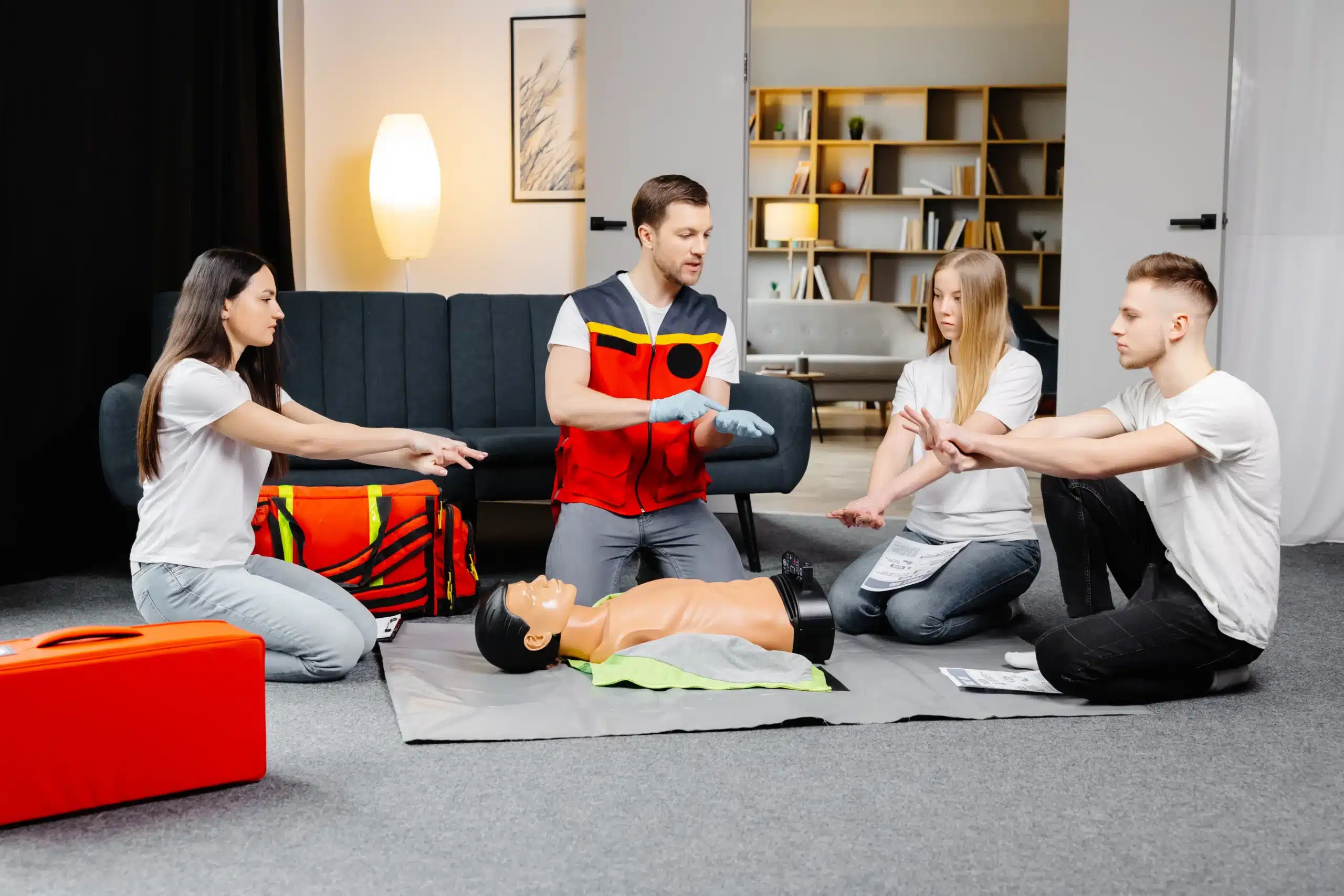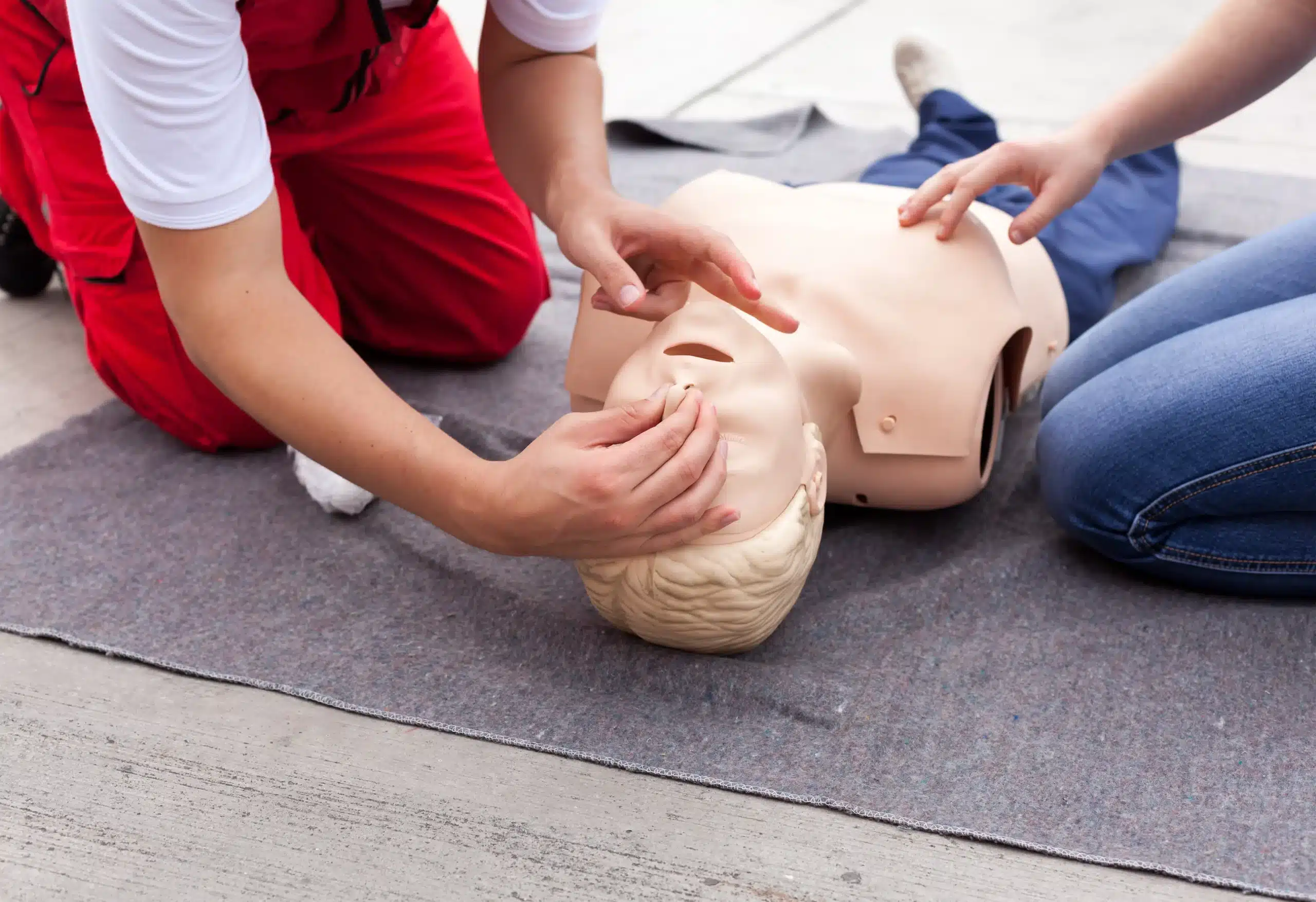Emergencies can happen anytime, anywhere. Being prepared isn’t just about having a first-aid kit; it’s about having the skills to respond effectively when someone’s life is on the line. CPR classes in Vallejo provide residents with the training they need to become immediate responders in critical situations. This guide will walk you through the various CPR class options available in Vallejo, including certification levels, course formats, and cost considerations. We’ll also discuss the importance of CPR in a community context and how you can become a vital part of Vallejo’s emergency preparedness network.
Key Takeaways
- CPR skills empower you to make a difference in Vallejo: Equipping yourself with CPR training enables you to respond confidently to emergencies and potentially save lives within your community.
- Find the right CPR class in or near Vallejo: Explore the various options available, from basic to advanced certifications, and choose a format—in-person, hybrid, or online—that suits your learning style and schedule.
- Invest in life-saving skills: CPR certification provides lasting value. Consider group training for cost savings and explore available resources to maintain your certification and stay prepared.
What is CPR and Why is it Important in Vallejo?
Cardiopulmonary Resuscitation (CPR) is a life-saving technique used during medical emergencies like cardiac arrest. It involves chest compressions and rescue breaths to circulate oxygenated blood to the brain and other vital organs when someone’s heart has stopped beating. Learning and practicing CPR can dramatically improve a person’s chances of survival until paramedics arrive.
CPR is especially important in Vallejo, where quick access to medical care can sometimes be delayed. Residents trained in CPR create a network of potential first responders within the community. When someone experiences a cardiac event, nearby CPR-trained individuals can provide immediate assistance, potentially bridging the gap before professional help arrives. This community-based approach to emergency preparedness strengthens Vallejo’s overall safety net. CPR and first-aid training empowers individuals to make a real difference. The more people in Vallejo equipped with these skills, the safer the community becomes. This makes widespread CPR training a vital investment in public health and safety.
CPR Classes in Vallejo
Finding the right CPR class in Vallejo depends on your specific needs and goals. Whether you’re a healthcare professional, a childcare provider, or simply someone wanting to learn this life-saving skill, several options are available. Here’s a breakdown of the different types of CPR classes you can find in Vallejo:
Basic Life Support (BLS)
Basic Life Support (BLS) classes are the cornerstone of CPR training. These courses cover the fundamental skills needed to respond to life-threatening emergencies. You’ll learn high-quality CPR techniques for adults, children, and infants, along with how to use an Automated External Defibrillator (AED). BLS certification is crucial for healthcare providers and anyone working in a medical setting. It’s also a valuable asset for those in roles like lifeguarding, coaching, or personal training. Safety Training Seminars offers BLS certification in nearby Napa.
Adult and Pediatric First Aid/CPR/AED
For a more comprehensive approach, consider an Adult and Pediatric First Aid/CPR/AED course. These classes combine essential CPR training with first aid techniques for both adults and children. You’ll gain practical skills to manage a range of emergencies, from treating minor injuries to performing CPR in critical situations. The Greater Vallejo Recreation District offers this combined training, making it a convenient option for Vallejo residents.
Advanced Cardiac Life Support (ACLS)
Advanced Cardiac Life Support (ACLS) courses are designed for healthcare professionals involved in advanced life support situations. These classes delve deeper into the management of cardiac arrest and other cardiovascular emergencies. They emphasize teamwork, effective communication, and advanced techniques for airway management and pharmacology. The CPR Training Center of Concord offers ACLS training convenient to the Vallejo area. Safety Training Seminars also provides ACLS training in nearby Napa.
Where to Get CPR Training in Vallejo
Finding the right CPR class in Vallejo depends on your specific needs and preferences. Here are a few options to explore:
Safety Training Seminars
While Safety Training Seminars is located in Napa, we serve the broader community, including Vallejo residents. We offer a comprehensive range of American Heart Association courses, such as BLS, ACLS, and PALS certification. Our focus is on providing high-quality training at competitive prices. We strive to make our courses accessible to everyone in Solano County.
Greater Vallejo Recreation District
The Greater Vallejo Recreation District partners with the American Red Cross to offer a combined Adult and Pediatric First Aid/CPR/AED certification. This course covers essential life-saving skills for both adults and children, blending classroom instruction with hands-on practice. This approach helps participants gain the confidence to respond effectively in emergencies.
CPR Training Center
For those seeking American Heart Association (AHA) certified courses, the CPR Training Center in Vallejo offers various options, including in-person and online CPR and advanced life support training. This flexibility accommodates different schedules and learning styles, making it a convenient choice for busy professionals or those who prefer self-paced learning.
CPR Class Today
CPR Class Today focuses on hands-on training for CPR and Basic Life Support, as well as First-Aid. Their practical approach emphasizes real-world scenarios and skill application. Located at 640 Tuolumne St, Vallejo, CA 94590, their classes are conveniently located for in-person instruction.
CPR Class Costs & Value in Vallejo
Knowing the price range for CPR classes in Vallejo helps you budget and find the best value. While cost is a factor, remember that the skills you gain are invaluable.
Typical Prices
CPR class prices in Vallejo vary based on the type of course and the training provider. Basic Life Support (BLS certification) classes, which teach fundamental life-saving skills, are generally the most affordable. More advanced courses like ACLS (Advanced Cardiovascular Life Support) and PALS (Pediatric Advanced Life Support), which cater to healthcare providers, typically have a higher price tag due to the specialized training involved. For up-to-date pricing, contact Safety Training Seminars directly. You can also compare with other providers like Bay Area CPR to get a sense of the general price range.
Group Discounts and Promotions
If you’re coordinating training for a group, look for discounts. Many CPR training providers in Vallejo, including Safety Training Seminars, offer reduced rates for group bookings. This can be a cost-effective way to train your team, company, or community group. Check with your chosen provider about group discounts and any current promotions to maximize your training budget.
CPR Certification & Validity
Knowing how long your CPR certification is valid and how to renew it is essential for staying prepared for emergencies. This section clarifies how certification works, focusing on the American Heart Association (AHA) and American Red Cross programs offered in Vallejo.
American Heart Association (AHA) Certifications
The American Heart Association (AHA) offers various CPR and first aid certifications, including BLS for healthcare providers and Heartsaver courses for the general public. These certifications are widely recognized and accepted. AHA courses cover essential life-saving techniques, emphasizing high-quality CPR and effective responses to various emergencies. You can find AHA-certified courses in Vallejo, ensuring access to top-tier training.
American Red Cross Certifications
The American Red Cross also provides comprehensive CPR and first aid certifications, covering adult, child, and infant CPR, AED training, and first aid. These certifications are accepted by many organizations and workplaces. Like AHA certifications, Red Cross courses blend theory with practical skills, giving you the confidence to act in a crisis. Check with your employer or regulatory body to ensure Red Cross certification meets their requirements.
Renewing Your Certification
CPR certifications, whether from the AHA or Red Cross, are typically valid for two years. Staying current with the latest guidelines and techniques is crucial for providing effective care. Renew your certification by taking a refresher course before your current certification expires. This ensures you maintain the skills and knowledge needed to respond confidently in emergencies. Check with your certifying organization or a local training center for specific renewal requirements and available courses in Vallejo. Don’t let your skills lapse—stay prepared and keep your certification current.
CPR Class Format & Structure
In-Person Training
In-person CPR training remains a popular and effective way to learn this life-saving skill. It offers a hands-on learning experience guided by certified instructors. For healthcare providers and those seeking certification recognized by the American Heart Association (AHA), in-person BLS CPR classes are an excellent option. These courses combine demonstrations, practice scenarios, and personalized feedback to build confidence and competence. Safety Training Seminars offers in-person training for several certifications, including ACLS and PALS, ensuring comprehensive, hands-on instruction. This direct interaction with instructors and other students creates a supportive learning environment.
Online and Hybrid Options
For a more flexible approach, online and hybrid CPR courses are gaining popularity. The RQI program, for example, offers a blended learning experience that combines online modules with in-person skills sessions. This format allows healthcare professionals to learn at their own pace and refresh their knowledge regularly. Hybrid options provide a convenient way to fit CPR training into busy schedules while still ensuring competency through hands-on practice.
Class Length and Topics
CPR class length and content vary depending on the specific course and certification level. Basic Life Support (BLS) classes typically run between four to six hours and cover core topics such as adult, child, and infant CPR, along with AED usage. More specialized courses, like the EMSA Child Care Health & Safety program, address specific scenarios and may require additional training hours. Regardless of the format, you can expect a combination of theoretical instruction and practical exercises. This blended approach ensures you understand the principles behind CPR and develop the muscle memory needed to perform it effectively.
What Happens in a CPR Class?
CPR classes blend practical skills with essential theory, culminating in an assessment to ensure you’re ready to respond confidently in an emergency. Here’s a glimpse of what you can expect:
Hands-On Practice
CPR classes aren’t just lectures—they’re highly interactive. You’ll spend a significant portion of your time practicing the techniques you learn on mannequins. This hands-on training allows you to develop muscle memory and gain confidence in performing chest compressions, rescue breaths, and using an AED. This practical experience is crucial for translating classroom knowledge into real-world action.
Theory and Knowledge
While hands-on practice is key, understanding the why behind the techniques is equally important. Your instructor will cover essential topics such as recognizing the signs of a cardiac arrest, understanding how CPR works to circulate blood and oxygen, and the steps of the Chain of Survival. These BLS classes often adhere to American Heart Association (AHA) guidelines, providing a standardized and comprehensive curriculum. This theoretical foundation empowers you to make informed decisions in critical situations.
Assessment and Certification
At the end of your CPR class, you’ll undergo an assessment to demonstrate your proficiency in the skills and knowledge you’ve acquired. This typically involves a practical demonstration of CPR techniques and a written exam covering key concepts. Successful completion earns you CPR certification, validating your skills and allowing you to provide assistance in emergencies. This certification is a testament to your commitment to life-saving skills and provides peace of mind knowing you’re prepared to help when needed.
Enrolling in a CPR Class
Finding the right CPR class and signing up is straightforward. Here’s what you should know about the process and policies.
How to Sign Up
Several organizations offer CPR classes in Vallejo. The American Heart Association (AHA) provides Basic Life Support (BLS) CPR classes designed to equip people with the skills to respond to emergencies. You can find these courses through authorized training centers and instructors throughout the Vallejo area. Safety Training Seminars also offers a variety of CPR training, including BLS, ACLS, and PALS, right here in Vallejo. This is a convenient option for anyone looking for comprehensive training in Solano County. Check with your chosen provider for their specific registration process, which usually involves selecting a class date and time, completing a registration form, and making a payment. For example, you can explore BLS, ACLS, and PALS courses offered by Safety Training Seminars on their website.
Cancellations and Rescheduling
Understanding cancellation and rescheduling policies is important before signing up for a class. Policies vary, so always check with the specific training center. Some organizations have strict no-refund policies but allow one-time rescheduling within a certain timeframe. Others may offer refunds or rescheduling options depending on when you cancel, with varying penalties for cancellations closer to the class date. Reading these policies beforehand will help you avoid any surprises and manage your schedule effectively. For instance, you can review Safety Training Seminars’ policies on their website. Knowing this information upfront makes the whole process smoother.
Choose the Right CPR Class
Choosing the right CPR class is crucial for effectively learning life-saving skills. With different levels of certification and course formats, understanding your needs and goals will help you make the best decision.
Factors to Consider
When selecting a CPR class in Vallejo, think about what type of certification you need. The American Heart Association (AHA) offers Basic Life Support (BLS) CPR training to equip people with the skills to respond to emergencies. These classes typically run four to six hours, balancing theoretical knowledge and hands-on practice. This timeframe allows ample opportunity to build confidence and competence in performing CPR. Location and scheduling are also important. Choose a class location that works for you and fits your availability.
Matching Classes to Your Goals
Consider your personal or professional reasons for getting CPR certified. Are you a healthcare provider, a workplace safety coordinator, or simply a concerned community member? Safety Training Seminars offers a variety of courses, including AHA BLS, ACLS, and PALS, to meet different needs and career paths. Healthcare professionals might consider the AHA’s Resuscitation Quality Improvement (RQI) program, a streamlined way to stay certified. This program is especially helpful for busy medical professionals in Vallejo. If you’re working in childcare, the EMSA Child Care Health & Safety course covers essential first aid and CPR techniques for infants and children. By carefully considering your goals, you can choose the CPR class that best suits your needs.
Benefits of CPR Certification in Vallejo
Getting CPR certified offers several advantages, whether you live in Vallejo, work there, or are just visiting. Knowing CPR gives you the confidence to respond effectively during emergencies. It’s a valuable skill that can make a real difference. CPR and first-aid training empowers individuals to take action and potentially save lives (CPR & First-aid Classes in Vallejo, CA). Think of it as a vital tool, ready for any unexpected situation.
Group CPR training in Vallejo offers a supportive learning environment where you can practice your skills and learn from others (Discount Group Classes). These classes are designed to be interactive and engaging, making learning CPR a positive experience. Learning alongside others can also build a sense of community.
Vallejo CPR classes provide comprehensive training covering essential skills, from basic CPR to advanced life support (CPR Training in Vallejo, CA). The courses often incorporate the latest guidelines and best practices, ensuring you receive up-to-date information and can respond confidently in various situations. For healthcare professionals in Vallejo, maintaining current certifications is essential, and the American Heart Association RQI program offers a streamlined way to stay certified in BLS, ACLS, and PALS (CPR, BLS, ACLS, PALS, & First-aid Classes in Vallejo, CA). This program emphasizes continuous quality improvement, ensuring healthcare providers maintain the highest standards of resuscitation care. It’s a convenient and efficient way to meet professional requirements and demonstrates your commitment to excellent patient care.
Finally, the flexible course options in Vallejo make it easier to fit CPR training into your schedule (BLS CPR Classes in Vallejo, CA). Whether you prefer a weekday evening class or a weekend workshop, you can find a format that accommodates your busy life.
Related Articles
- Why CPR is Important in Healthcare – Napa CPR Classes
- Northern CA CPR Directory – Napa CPR Classes
- PALS Classes in Napa, CA – Napa CPR Classes
- CPR & First-aid Classes in Napa, CA – Napa CPR Classes
- BLS CPR Classes in Napa, CA – Napa CPR Classes
Frequently Asked Questions
What’s the difference between BLS and ACLS CPR training?
BLS (Basic Life Support) CPR training teaches the fundamentals of CPR, including chest compressions, rescue breaths, and AED use. It’s suitable for anyone, from healthcare providers to concerned community members. ACLS (Advanced Cardiovascular Life Support) is more advanced and geared towards healthcare professionals. It covers a broader range of skills for managing complex cardiac emergencies. Think of BLS as the foundation, while ACLS builds upon that foundation with more specialized knowledge.
How much do CPR classes typically cost in Vallejo?
The cost of CPR classes in Vallejo varies depending on the type of course and the training provider. Basic CPR classes are generally more affordable than advanced certifications like ACLS or PALS. It’s always a good idea to contact the training center directly or check their website for up-to-date pricing information. Many providers also offer group discounts, so if you’re training with friends, family, or colleagues, be sure to ask about those options.
How long is a CPR certification valid, and how do I renew it?
Most CPR certifications, including those from the American Heart Association and the American Red Cross, are valid for two years. To renew your certification, you’ll need to take a refresher course before it expires. This ensures your skills and knowledge are current. Check with your certifying organization or a local training center for specific renewal requirements and available courses.
What if I need to cancel or reschedule my CPR class?
Cancellation and rescheduling policies vary between training providers. Some may offer refunds or allow rescheduling with enough notice, while others have stricter policies. It’s essential to review the specific policies of the training center you choose before registering for a class to avoid any surprises. Contact the provider directly if you have any questions about their policies.
Are online CPR classes as effective as in-person classes?
Online CPR classes offer flexibility, but they typically don’t provide the same level of hands-on practice as in-person classes. While online courses can be a good way to learn the theoretical aspects of CPR, it’s generally recommended to supplement them with in-person skills practice to develop the muscle memory and confidence needed to perform CPR effectively in a real-life emergency. Some programs offer hybrid options that combine online learning with in-person skills sessions, providing a balance of flexibility and practical training.

